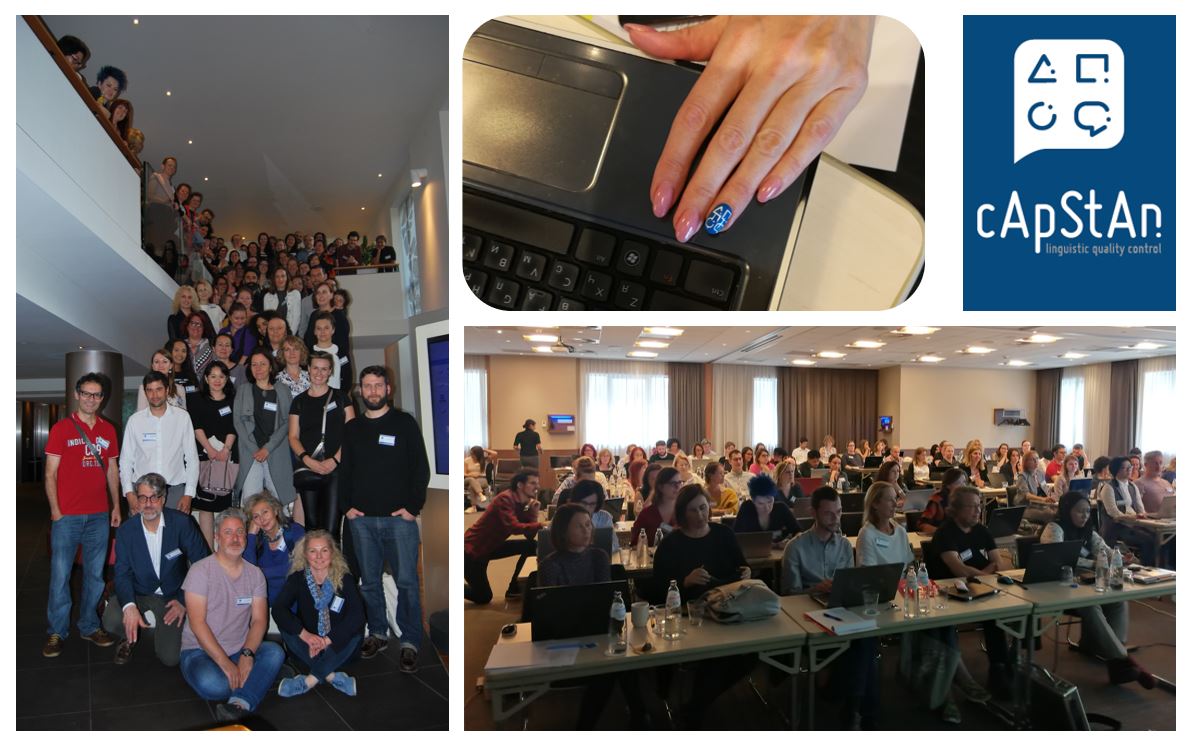
Excellence among friends: 85 freelance linguists from 60 countries
by Steve Dept – cApStAn partner
Andrea Ferrari, one of the founders of cApStAn Linguistic Quality Control, coined that phrase a decade ago: excellence among friends. At the end of two-day training seminar for verifiers in charge of linguistic quality assurance of multiple language versions of OECD/PIAAC Cycle 2 and OCDE/PISA 2021 instruments, which took place on Friday, May 31st and Saturday, June 1st, the ‘excellence among friends’ magic was palpable. The old hands promptly herded newcomers away from threshold fear and into a confidence zone.
For this edition of the training seminar, we had chosen to crack the toughest nut on the first day: professional linguists all have their preferred computer-assisted translation tools (CAT tools), but our approach to translation verification in computer-delivered international large-scale assessments (ILSAs) requires that all players use the same free and open source tool, in this case OmegaT, a powerful CAT tool that our leas translation technologist customized for use in PISA and PIAAC. All verifiers (well, almost all verifiers) attending the training had pre-installed the customized version and downloaded the exercises, but it did take some time before we were able to overcome residual teething problems (special thanks to the technical team’s patience when solving these). The level of interaction was impressive: over thirty questions were asked, all of them relevant, all of them answered. Everyone was aware that there would be a learning curve, but then these are professionals: they took it in stride and initial apprehensions dissolved.
On day two, after a refresher course on the scope and objectives of linguistic quality control in ILSAs, we delved into the 14 cApStAn verifier intervention categories and the 46 new sub-categories, which come as drop-down menus and are designed to help verifiers refer to a common framework when formulating their comments. These standardized comments reduce variance in reporting equivalence issues and help verifiers hold their subjectivity in check. The hands-on exercises were a big success: they triggered healthy debates on the best way to report and fix consistency issues, on how to use glossaries, or on how to assess whether an intentional deviation from the master version is desirable or necessary. On the second day, everybody was on first-name terms. The Hebrew and Arabic verifiers joked together, the Serbian, Croatian and Albanian verifiers fraternized and there was no hostility between the Russian and Ukrainian verifiers: we are linguists, not politicians.
A cApStAn seminar is not only about technicalities, workshops and procedures. There is a cApStAn vibrancy, a culture of mutual respect and collective ownership of the projects. There is an opportunity for each of the Brussels and Philadelphia project managers to use their superpowers and become heroes, and there is an opportunity for linguists — who generally work on their own — to exchange verification (and other) experiences with their peers and to realise how important their role is. This edition was intense, upbeat, intimate and unforgettable, and the feedback we received recharged our batteries for the months to come. This comes at the right time: the verification work will take up the better part of our energy in the weeks and months to come. It is good that the linguists can put a face on each member of the cApStAn team, who in turn will remember the smile of each linguist asking for help or delivering feedback. As Nick (an experienced verifier) put it: “What I really take away with me, beyond a head full of acronyms and new knowledge of a system that initially seemed impenetrable but is now just a little less scary, is a feeling of strong human warmth.”